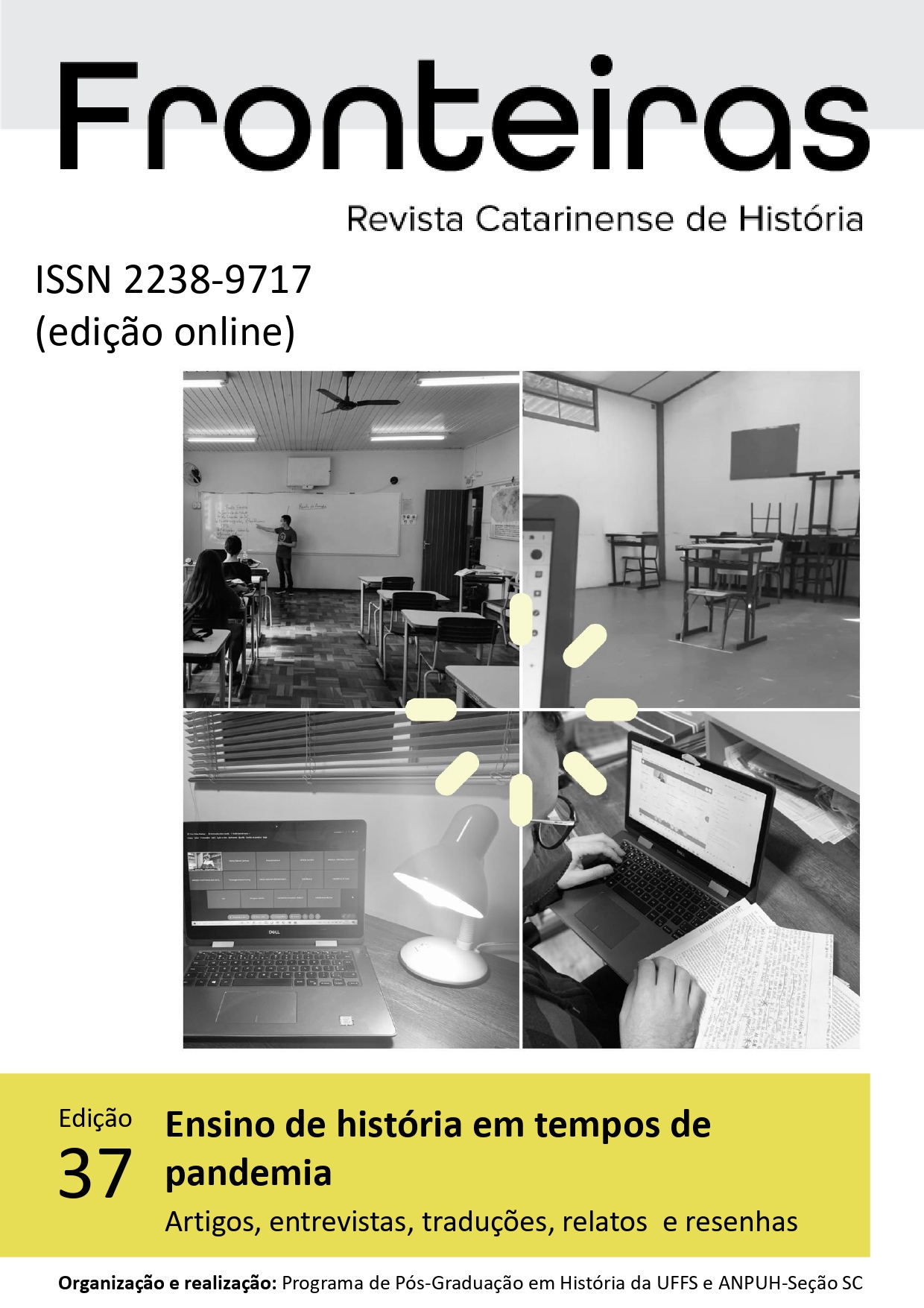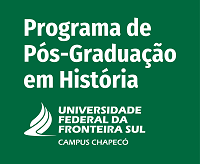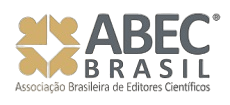History learning in a pandemic context
what can be and embody a History class?
DOI:
https://doi.org/10.36661/2238-9717.2021n37.12463Keywords:
History Teaching, Emergency remote learning, Formation of historical thought, PandemicAbstract
In 2020, the world was heavily affected by the pandemic of the SARS-CoV-2 – this situation was, in Brazil, greatly aggravated by the deepening of the economic crisis and the inability of the federal government in managing the sanitary crisis. The context resulted in the suspension of presential activities in educational institutions and the subsequential installation of remote learning. In this paper we seek to problematize the impacts of the restrictions of the face-to-face elements that up until the pandemic grounded what we understand as an History class. We point out that the impacts of remote learning rely on, in great measure, the intentionality of the History teaching. When operating with live and potent interaction between the teaching-learning subjects, a lot is lost with the interdiction of the presential class and also with the absence of qualified virtual interaction in remote learning.
Downloads
References
BAKHTIN, M. M./VOLOCHINOV, V. Marxismo e filosofia da linguagem: problemas fundamentais do método sociológico na ciência da linguagem. 12. ed. São Paulo: Hucitec, [1929], 2006.
CARRASCO, Cosme J. Gomez.; MARTÍNEZ, Pedro Miralles. ¿Pensar históricamente o memorizar el pasado? La evaluación de los contenidos históricos en la educación obligatoria en España. Revista de Estudios Sociales, n. 52, p. 52-68, June 2015.
COSTA, Alinne Grazielle Neves. Aventuras e desventuras do ensino remoto de História em tempos de pandemia com alunos e alunas do Ensino Fundamental II em uma escola privada 4.0. In: ABEH: Associação Brasileira de Pesquisa em Ensino de História. Anais do XI Encontro Nacional Perspectivas do Ensino de História - Perspectivas Web 2020. Ponta Grossa: ABEH, 2020.
FREIRE, Paulo. Pedagogia da autonomia: saberes necessários à prática educativa. 2. ed. Rio de Janeiro: Paz e Terra, 1997.
GERALDI, João Wanderley. A aula como acontecimento. São Paulo: Pedro & João Editores, 2015.
JULIA, Dominique. A cultura escolar como objeto histórico. Revista Brasileira de História da Educação, Campinas, n. 1, p. 9-44, 2001.
MARCUSCHI, Luiz Antônio. O diálogo no texto da aula expositiva: continuidade, ruptura e integração. In: PRETI, Dino (Org.). Diálogos na fala e na escrita. Projeto NURC (SP-USP). São Paulo: Humanitas, 2005, p. 45-84.
MOSCOVICI, Serge. Representações sociais: investigações em psicologia social. 8. ed. Petrópolis: RJ: Vozes, 2011.
NICOLINI, Cristiano; MEDEIROS, Kênia Érica Gusmão. Percepções e narrativas de estudantes da educação básica de Goiás sobre o ensino remoto emergencial. In: ABEH: Associação Brasileira de Pesquisa em Ensino de História. Anais do XI Encontro Nacional Perspectivas do Ensino de História - Perspectivas Web 2020. Ponta Grossa: ABEH, 2020.
OLIVEIRA, Abraão Campos de; OLIVEIRA, Juliete Castro. Educação on-line: o alcance e as dificuldades do ensino remoto em tempos de pandemia. In: ABEH: Associação Brasileira de Pesquisa em Ensino de História. Anais do XI Encontro Nacional Perspectivas do Ensino de História - Perspectivas Web 2020. Ponta Grossa: ABEH, 2020.
POZO, Juan Ignácio; ALDAMA, Carlos de. A mudança nas formas de aprender e ensinar na era digital. Revista Pátio Ensino Médio, ano 5, n. 19, p. 10-13, Dez.2013/Fev.2014.
ROCHA, Helenice Aparecida Bastos. Aula de História: evento, ideia e escrita. História & Ensino, Londrina, v. 21, n. 2, p. 83-103, jul./dez. 2015.
SANTISTEBAN FERNÁNDEZ, Antoni. La formación en competencias de pensamiento histórico. Clío & Asociados. La Historia Enseñada, n.14, p. 34-56, 2010.



















